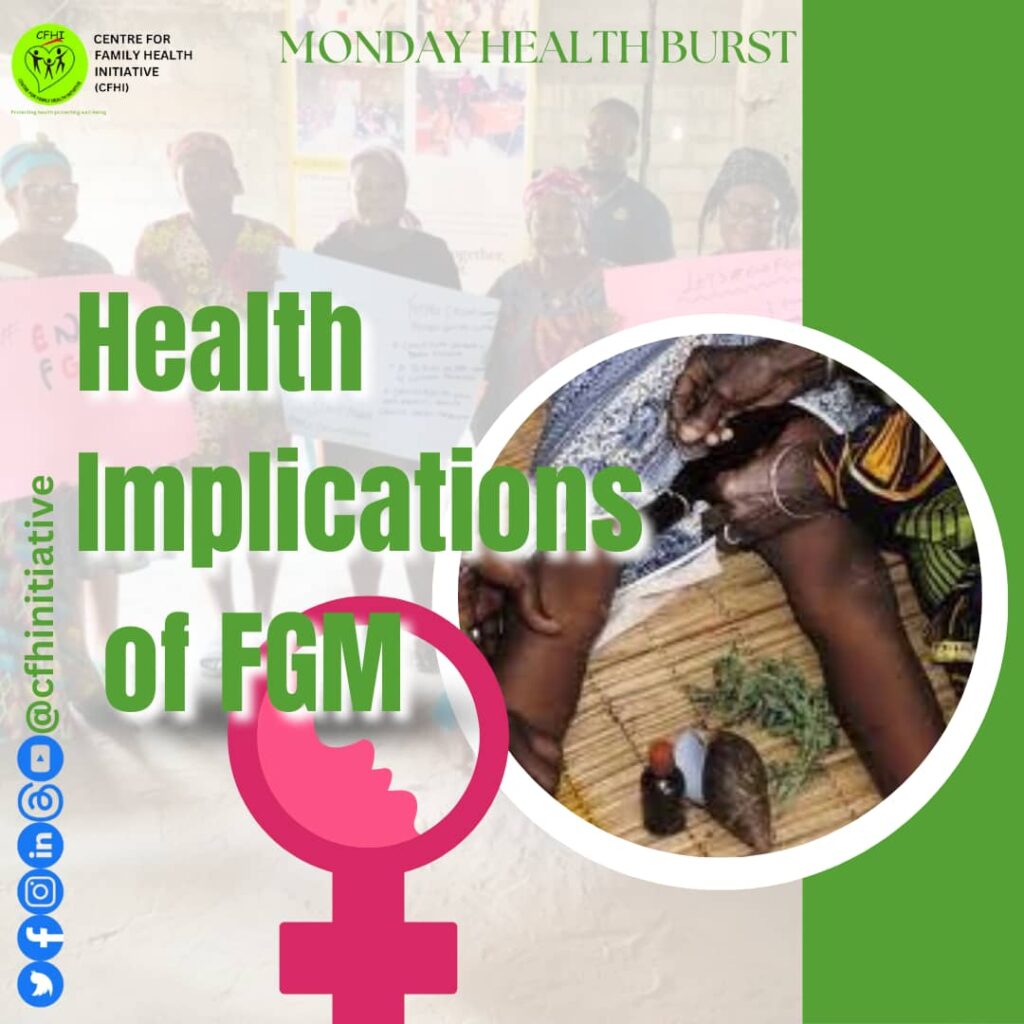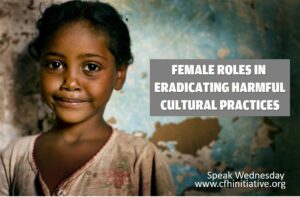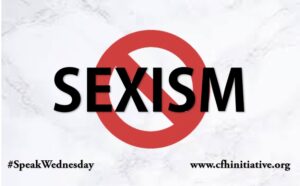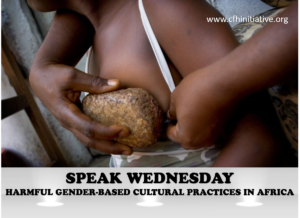HEALTH IMPLICATIONS OF FEMALE GENITAL MUTILATION
Female Genital Mutilation (FGM) is a harmful traditional practice that involves altering or injuring the female genitalia for non-medical reasons.1 This practice, prevalent in many cultures around the world, has severe health implications for women and girls who undergo it. From physical to psychological consequences, FGM leaves a lasting impact on the well-being of individuals subjected to it. Some of the health implications include:
Immediate Complications: FGM can result in severe pain, bleeding, and shock immediately following the procedure. In some cases, it can even lead to death due to excessive bleeding or infections.
Long-term Health Issues: Women and girls who undergo FGM may face long-term health problems such as chronic pain, infections, urinary problems, and complications during childbirth. Scar tissue formation and damage to the reproductive organs can cause difficulties in sexual intercourse and menstruation.
Increased Risk of Infections: The practice of FGM often involves using unsterilized tools or performing the procedure in unsanitary conditions, leading to an increased risk of infections such as tetanus, HIV/AIDS, and hepatitis B and C.
Trauma and Psychological Distress: The experience of undergoing FGM can cause significant trauma and psychological distress, leading to anxiety, depression, and post-traumatic stress disorder (PTSD). The violation of bodily integrity and the associated pain can have long-lasting effects on mental well-being.
Interference with Sexual Functioning: FGM can interfere with sexual functioning and intimacy, causing pain during intercourse and reducing sexual pleasure. This can strain relationships and have negative effects on overall quality of life.
The health implications of FGM are profound and multifaceted, encompassing physical, psychological, and social dimensions. Efforts to address FGM must take a comprehensive approach, including education, advocacy, and support for affected individuals, as well as community engagement and legal reforms to eradicate this harmful practice and uphold the rights and dignity of women and girls.
Over the years, CFHI has observed the International Day of Zero Tolerance for Female Genital Mutilation as part of its own efforts to curb Female Genital Mutilation (FGM). A notable aspect of it was the celebration held at the St. Theresa Catholic church in Anurie Omanze, Idu LGA, Imo state, wherein the community was made aware of the importance of achieving zero FGM records. Over 100 participants were reached and they all pledged to join the movement.
Monday Health Burst is an initiative of CFHI to address issues of basic health concern. Join us every Monday on all our social media platforms for more episodes.
HEALTH IMPLICATIONS OF FEMALE GENITAL MUTILATION Read More »




